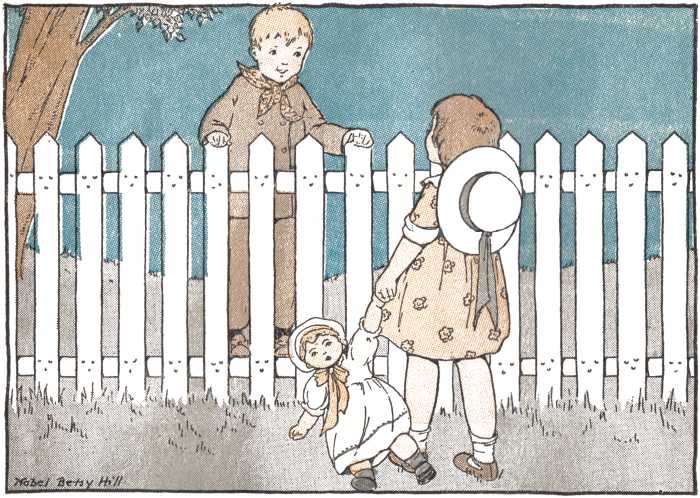
- More thrift store and reseller reports, not linked earlier: Blacksburg, Va. (“a lot of customer complaints at the YMCA at Virginia Tech since the thrift shop pulled kids’ toys off its shelves”), Chapel Hill/Carrboro, N.C. (“many patrons are upset” at absence of children’s items), Sioux City, Iowa (“To be on the safe side, Goodwill removed from the sales floors nearly all its used children’s clothing and all its toys”), Le Mars, Iowa (youngster’s outing ends in tears; items in storage for now).
And yet at many other stores — in other states or cities, maybe even down the block in the same town — decisions on what to drop have been much more selective. Thus New Orleans (large thrift store in St. Charles Parish “no longer accepting small toys, painted wood items or clothing with trinkets or toys attached to them,” those being, of course, a small fraction of the items that could lead to an inadvertent CPSIA violation), and Lufkin, Texas (list of goods Goodwill won’t accept includes bunk beds, bicycle helmets, embellished books, and many others, but a good bit narrower than CPSC guidance would suggest). The shop I visit most often, in a relatively prosperous NYC suburb, had a sparser-looking-than-usual selection yesterday, which nonetheless included items that would raise a definite eyebrow under the CPSC guidelines, such as kids’ athletic shoes with metal lacing grommets. And it’s not hard to find thrift outlets with relatively high profiles in their community — I won’t name names for fear of getting them into trouble — that don’t seem to have dropped much of anything. You’d hardly imagine that CPSIA was supposed to be a uniform national law. - Related: Riverside, Calif. Press-Enterprise, “Goodwill Industries International said it could potentially lose $134 million nationwide in the coming year if forced to dispose of all children’s clothing and products, according to spokeswoman Lauren Lawson.” And the Naperville, Ill., Sun covered the headaches of maternity and children’s reseller Connie Ballas (From My Room).
- Hugh Hewitt’s popular conservative radio show devoted an hour to the law yesterday, interviewing attorney Gary Wolensky of Snell & Wilmer, who represents manufacturers and whose discussion primarily focused on the headaches they face. The show drew a strong call-in reaction and has already led to a flurry of online interest in CPSIA reform.
- Meanwhile, Jennifer Grinnell of Sherborn, Mass. writes that CPSIA reform needs to be approached as more than a right-vs.-left, blue-red, Dem-Rep political football [Change.org]
- When the New Orleans Times-Picayune interviewed local toy stores, the independent retailer was finding the law “burdensome” and “very cumbersome” as she tried to communicate with all the producers of items in her stock, while the franchise operator seemed to be having a much easier time of it because he carried only items on a checklist from national and could piggyback his compliance paperwork on headquarters’. Yes, that sounds about right.
- Don’t toss those pre-’85 kids’ books, thrifters! Set them aside and await orders from D.C.! That seems to be the advice of Examiner columnist (and former children’s bookseller) Diane Petryk Bloom, who’s confident that a law this bad will be amended and suggests that in the mean time some civil disobedience might be in order, advice that might not be taken readily by resellers staring down the business end of those $100,000 potential fines.
Let’s assume she’s right that most people in the thrift store business can’t bring themselves to leave perfectly good children’s books out on the curb, and instead tuck them into storage for the time being or look the other way while an employee “borrows” them for home use. What happens next, as the weeks turn into months (or perhaps years) with no action from Henry Waxman & co.? The main mechanism by which we will lose older books is not so much that thrift stores will toss them in the trash, as that they’ll refuse to accept them as donations or consignments in the first place, while other outlets worried about legal liability (such as online auction sites) adopt similar policies. Once there’s no convenient way to dispose of the books even as donations, families will simply discard most of them (with occasional collectible/rarity exceptions) when the kids grow up, when moving house, or when winding up a family estate. It’s not as if there’s likely to be much press coverage of these micro-events, which doesn’t make them less than real.ParentDish and Etsy also have active threads in progress on the issue of older children’s books.
- Some other blog talk: Blue Rose Girls, Kora in Hell/WordSmoker (rude language), Lex Fortis (satire), and of course leading CPSIA-watchers Deputy Headmistress/Common Room (on press coverage, Consumers’ Union and dragons) and Valerie Jacobsen (what? you mean CPSC would target small business with punitive actions?)
- Sorry, even if your little girl has been saving up her allowance for one of our pretty hair barrettes, we can’t sell it to you, unless you want it for her dog [MaidenUS]

Public domain image: Grandma’s Graphics, Mabel Betsy Hill; dog image from MaidenUS.

4 Comments
I am more worried about the phthalate ban than I am about the lead ban. Perhaps I am paranoid, but I have removed all childrens products from my store. Other than knowing that phthalates are sometimes used to make plastic more pliable, I know absolutely nothing about the composition of the plastics in my inventory. I’m a retailer, not a chemist, though I doubt that would be a convincing defense.
The phthalate ban as I understand it:
1. After February 10, 2009 no childrens products containing phthalates can be sold or distributed.
2. There is no extension for the phthalate ban, per a federal judge in New York.
3. The reason for the ban is that some studies may have linked reproduction complications to phthalates.
I can envision myself in twenty five years, defending myself from a guy who is not able to reproduce or a woman that claims her child’s birth defects was caused by my negligence. The risk is not worth the reward.
It is truly ironic that the plastic items that I sell are safety items, very unlikely to be chewed or eaten by a child. I no longer offer childrens helmets, for example. No more gloves, no chest protectors, no boots, no shin guards, etc.
On the bright side, there may be a provision to the CPSIA law which excludes children’s sporting goods. I might be okay to restock my store, though I am waiting for an official ruling.
It’s heartbreaking to see children come in and then go away dissappointed in my store, thinking that they are not welcome. Damn stupid government for putting me in this position.
Well, perhaps we all ought to let our government bear the burdern of worry re: phthalates. NPR did a story that indicated manufacturers are replacing one chemical with another – and one of the new chemicals is apparently known to cause kidney damage in rats! If Big Brother knows best, I guess it falls on Big Brother’s shoulders when / if problems arise in future. I just posted a blog – a funny piece – and it touches on this aspect.
Ultimately, any law that causes 10 more problems (I know, I’m being kind) than it fixes isn’t one this mom with good, old fashioned common sense would have voted for…then again, I wasn’t consulted. You?
I have been yelling and screaming about the H.R. 968 that was proposed on February 10th. It currently has 10 cosponsors.
This bill is the best thing we can hope for. Unfortunately, it makes no mention of pre 1985 books — but it offers a six month delay, with which we could utilize that time to fight for our beloved literary history.
Have you (or ANYONE for that matter) read this bill? Please do and support it if you haven’t already.
[…] conservative talk host Hugh Hewitt has continued his coverage of the law. Per one transcript, he discussed it with star columnist Mark Steyn who knew about the […]